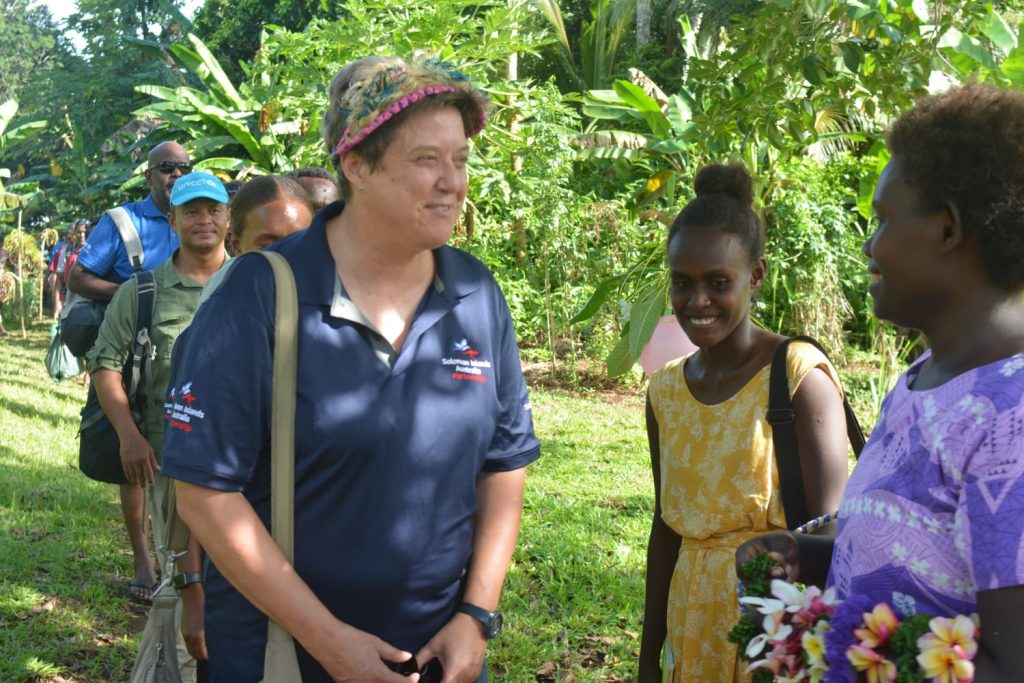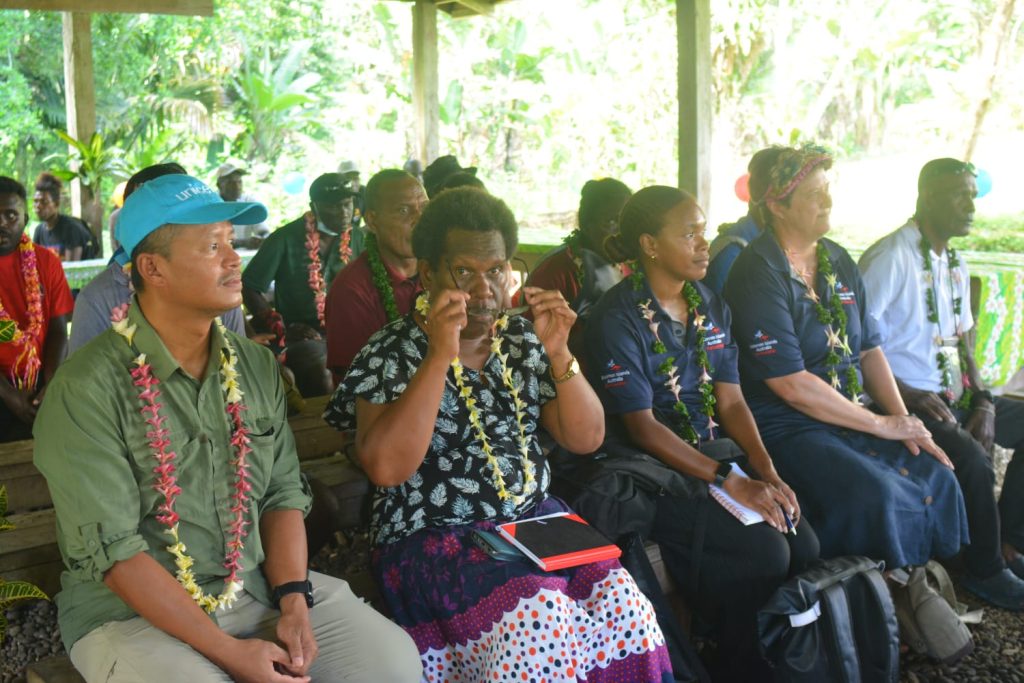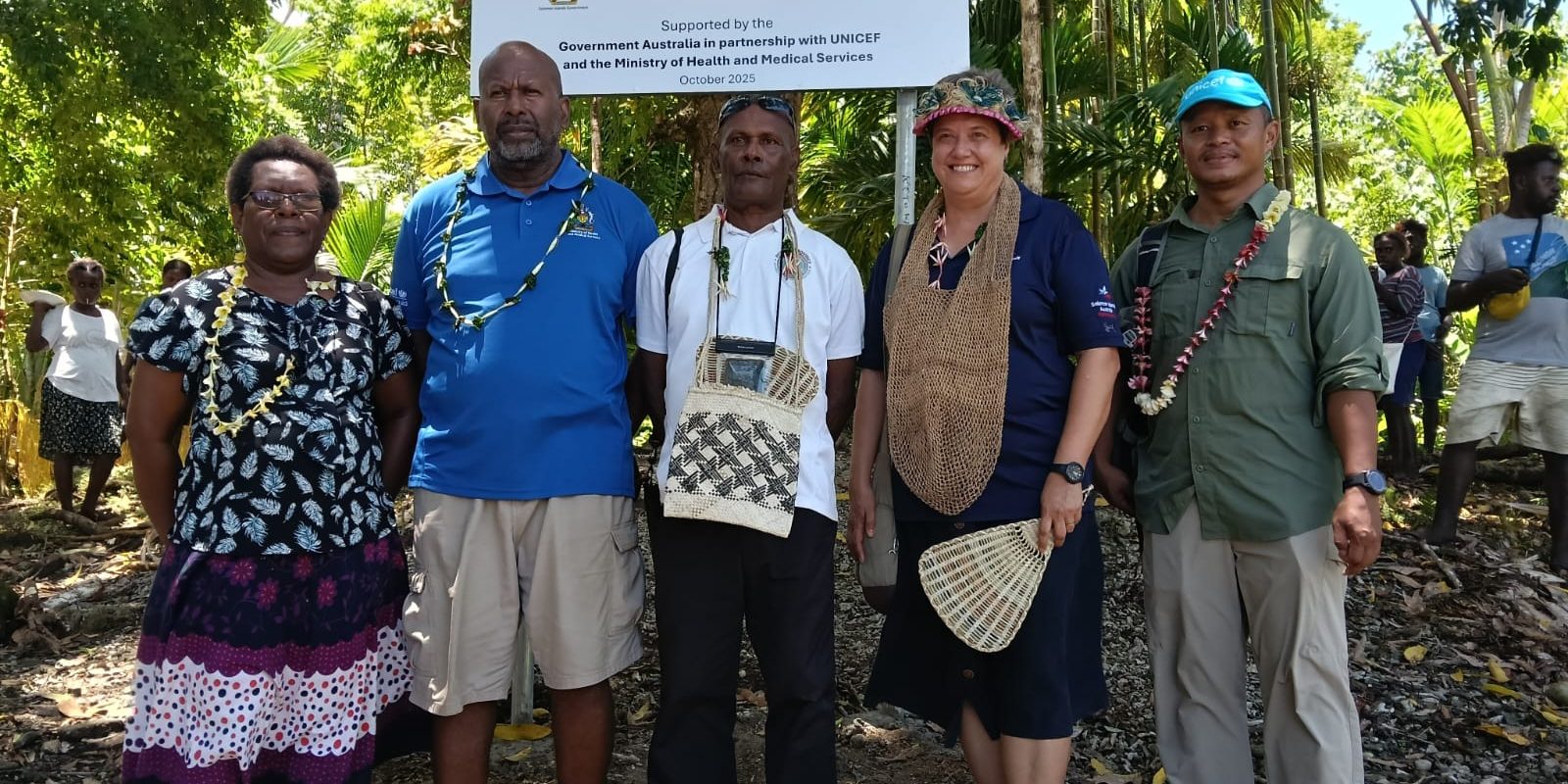AUSTRALIA has reaffirmed its strong partnership with Solomon Islands in the health sector, commending Western Province for achieving another major milestone in sanitation and hygiene.
The celebration marking No Open Defecation (NOD) status for seven communities in Rannogga and Kolombangara was held from October 27th to 30th, 2025, and attended by key partners and provincial leaders.
Speaking at the event, Ms. Elise Newton, First Secretary (Health) at the Australian High Commission to Solomon Islands said, it was an “absolute privilege and honour” to join the communities in celebrating such an important achievement that highlights the vital role of sanitation in public health and community development.
Ms. Newton said, Australia remains deeply committed as Solomon Islands’ principal health partner, supporting national and provincial health priorities through both financial and technical assistance.
“The Government of Australia is providing a contribution of SBD$3.5 million to the Ministry of Health and Medical Services (MHMS) to support the National Sustainable Sanitation Program (NSSP),” she said.
“This funding demonstrates Australia’s commitment to improving the health and well-being of communities across the Solomon Islands through the Solomon Islands–Australia Health Partnership,” she added.
Ms. Newton described the NOD initiative as a strong example of locally led development, emphasizing that true progress comes when communities are empowered to lead change.
“By placing communities like yours at the forefront of change, we ensure that solutions are not only relevant and sustainable but also tailored to your unique needs.
“Through this kind of partnership, we can create lasting impact and build healthier, safer environments for generations to come,” she added.

Ms Newton congratulated all seven communities for achieving NOD status, acknowledging the inclusive nature of the initiative that ensures every household— including the elderly and people living with disabilities—benefits from improved sanitation.
She noted that the new toilets have been designed to meet the specific needs of each household, ensuring accessibility and safety for all.
Ms. Newton also highlighted that adequate sanitation facilities promote the dignity and safety of women and girls, stressing that access to proper toilets is a basic human right and a key factor in preventing the spread of dangerous, yet avoidable, diseases.
The event marked another significant step forward in Western Province’s journey toward becoming open defecation free, reinforcing Australia’s commitment to helping build healthier, more resilient communities across Solomon Islands.
The seven newly recognized communities are; Babagea, Retona, New Bare and Central Buri and Logha in North Rannogan island and three in communities in Kolombangara, Ilitona, Pine and Patupaele community.
The NOD projects is supported by Australian Government in partnership with the UNICEF and the Ministry of Health and Medical Service (MHMS) and is implemented by ADRA – Adventist Development and Relief Agency Solomon Islands.
By ULUTAH GINA
Solomon Star, Gizo










